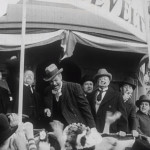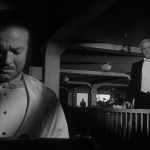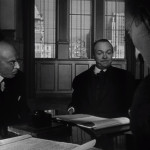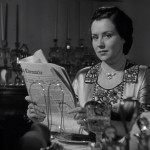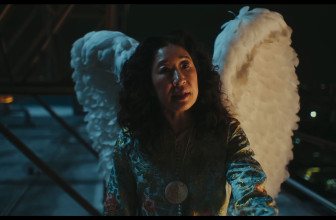What is the first thought that comes to mind when you think of purely classic cinema? Is it the 90s era of grunge films? Is it the eighties and the action blockbusters? Perhaps you think of the 70s and their overflow of gangster flicks? Or maybe you just think of the 60s and the golden age of the spaghetti western?
The truth is, there’s no one way to define classic cinema… though you can say this for sure; Orson Welles’ work helped shape modern cinema in the most powerful ways, and that is what makes Citizen Kane a classic film. It was there before all the rest, and it paved the way for what was to come.
How to Stream or Download Citizen Kane (1941)
To stream or to download the movie from a digital store of your choice, click on the Download button at the end of this review. If you like classic black and white movies, check out also our review of Casablanca.
The Movie Review
The story starts with Charles Foster Kane (Orson Welles), sickly on his deathbed in his mansion of Xanadu in Florida. He holds a snow globe, as his weary mind helps him utter the last words of his life, “Rosebud” he says as he passes to the afterlife. Kane was a popular figure, he was an industrial magnate and a newspaper publishing company owner and his last words being so mysterious sent reporters in frenzy.
Jerry Thompson (William Alland) is one of these reporters, and he gets tasked with figuring out the meaning behind the word “rosebud”. He sets out to interview and learn everything that he can from people that Kane was closest to. This is the format that the film remains in, for the most part, Alland’s character going around and interviewing people who knew Charles Foster Kane and each time they would speak it would cut to flashbacks. This is one of the earliest examples of “artificial aging” and “de-aging” in Hollywood, Orson Welles played both the young and old versions of Kane.
https://youtu.be/_qvjbH50IBw
The story is one of the very few fictional life stories that feel real, despite how bizarre it might be at times. Kane was picked out of a boarding school and recollected his mother’s fortune, by the time he was 25 years old; he became one of the richest men in the world.
He then began a series of yellow journalistic acts which damaged his own business ventures at times. He had a razor-sharp mind; he manipulated public opinion on the American-Spanish war by marrying the President of America’s daughter, Emily Norton (Ruth Warrick).
These things that Kane does, are what he believes in. His ideals are the first thing that he is loyal to, growing up poor in a boarding school without many friends or family, he learned that the only way to become notable was through controversy. The showcase of his popularity sky-rocketing and that affecting his ego was beautifully realistic.
A film from 1941, not holding any punches in showcasing how even the richest, most humble-looking man could turn up to be someone that doesn’t give his wife the rights to live her own life.
When his second wife, Susan (Dorothy Comingore) finally leaves him, we understand the pain he’s going through but his violent destruction of everything in her room was harrowing to watch. He only calms down once he sees a Snow Globe, upon holding it he says “rosebud” and calms down.
This is the moment Kane realizes that he cannot get everything that he wants in life, not the way he intended after all. Thompson has the same moral dilemma, thinking that he cannot crack the mystery of the word rosebud anymore; he gives up and leaves the investigation.
At the mansion of Xanadu, Kane’s belongings are being picked apart to be discarded or stored by the staff at the mansion. They find an old sled, a sled which eight-year-old Kane would play with during the harsh winters at his home in Colorado.
It’s thrown in with the rest of the junk inside of the furnace, and it burns as the camera revolves around it to show the word “Rosebud”. Just like all the rest of his things, his memories, his relationships, his money, his rosebud has finally burned too.
The Bottom Line
In conclusion, Citizen Kane is a film about a man so ambitious that he ends up destroying all that he loves or wants. He dies full of regrets, despite living a life full of pleasure, luxury, and power. The lyrical genius of Orson Welles’ Citizen Kane is found only in the art of filmmaking when you understand how explicitly this film shows a man spiraling down.

